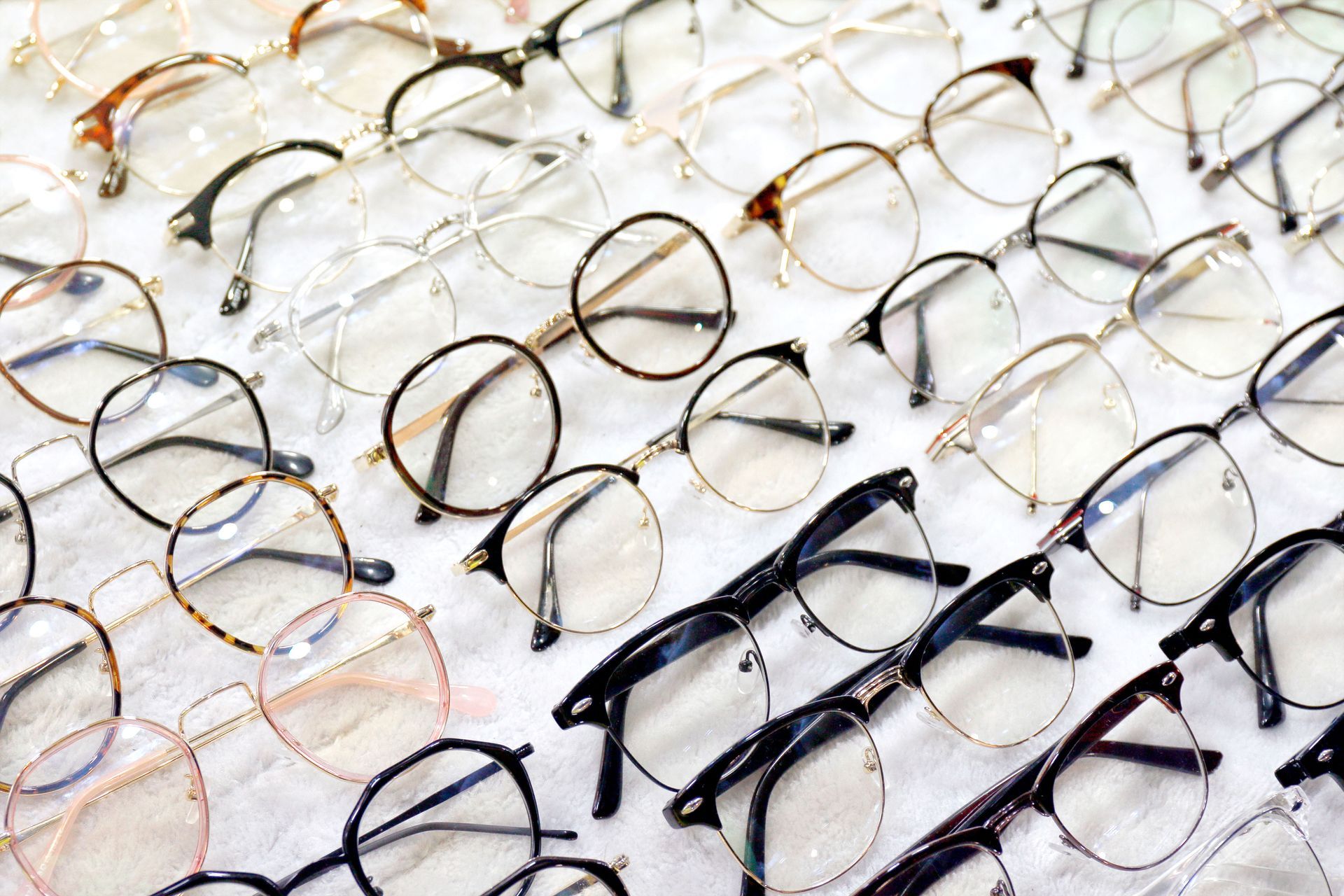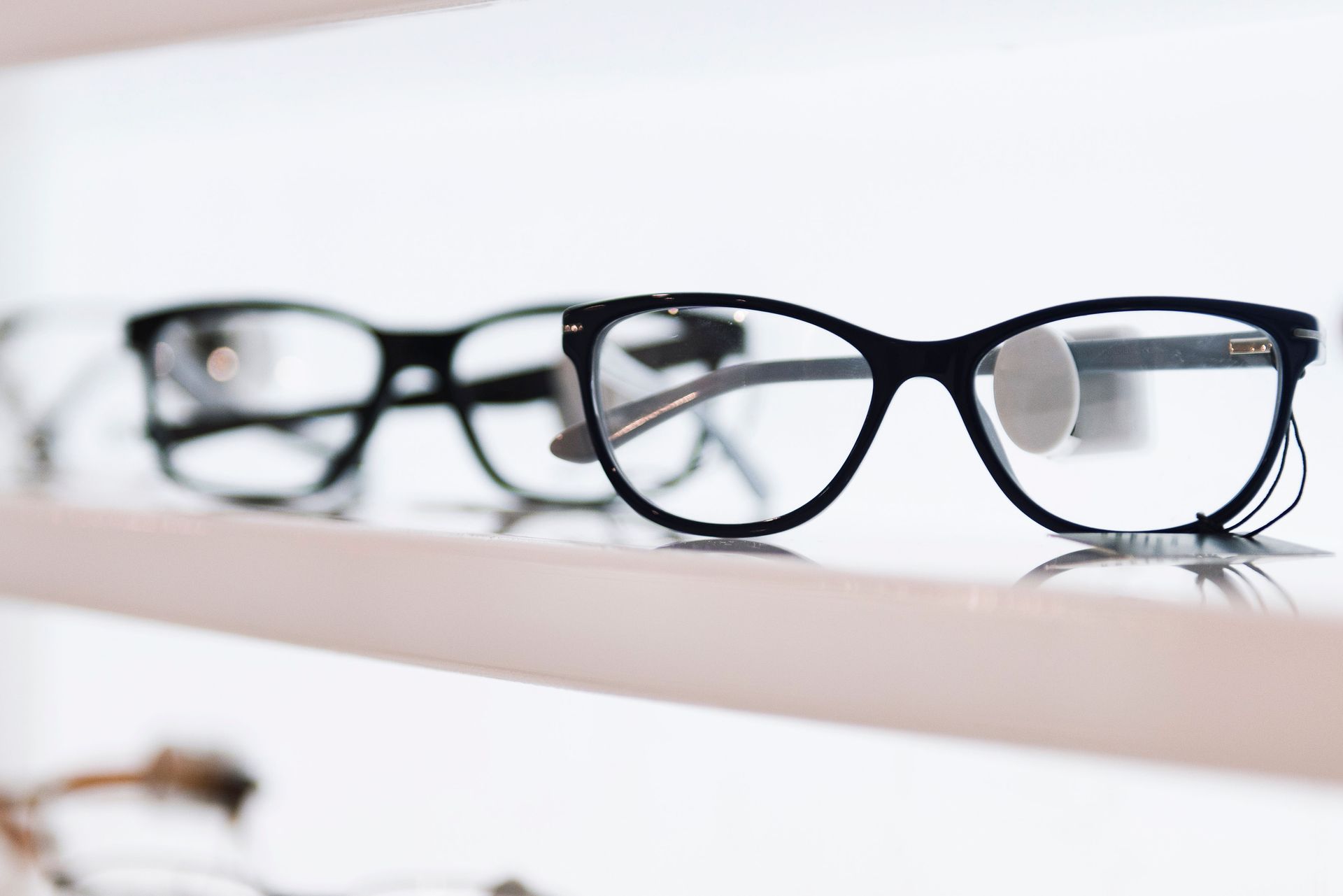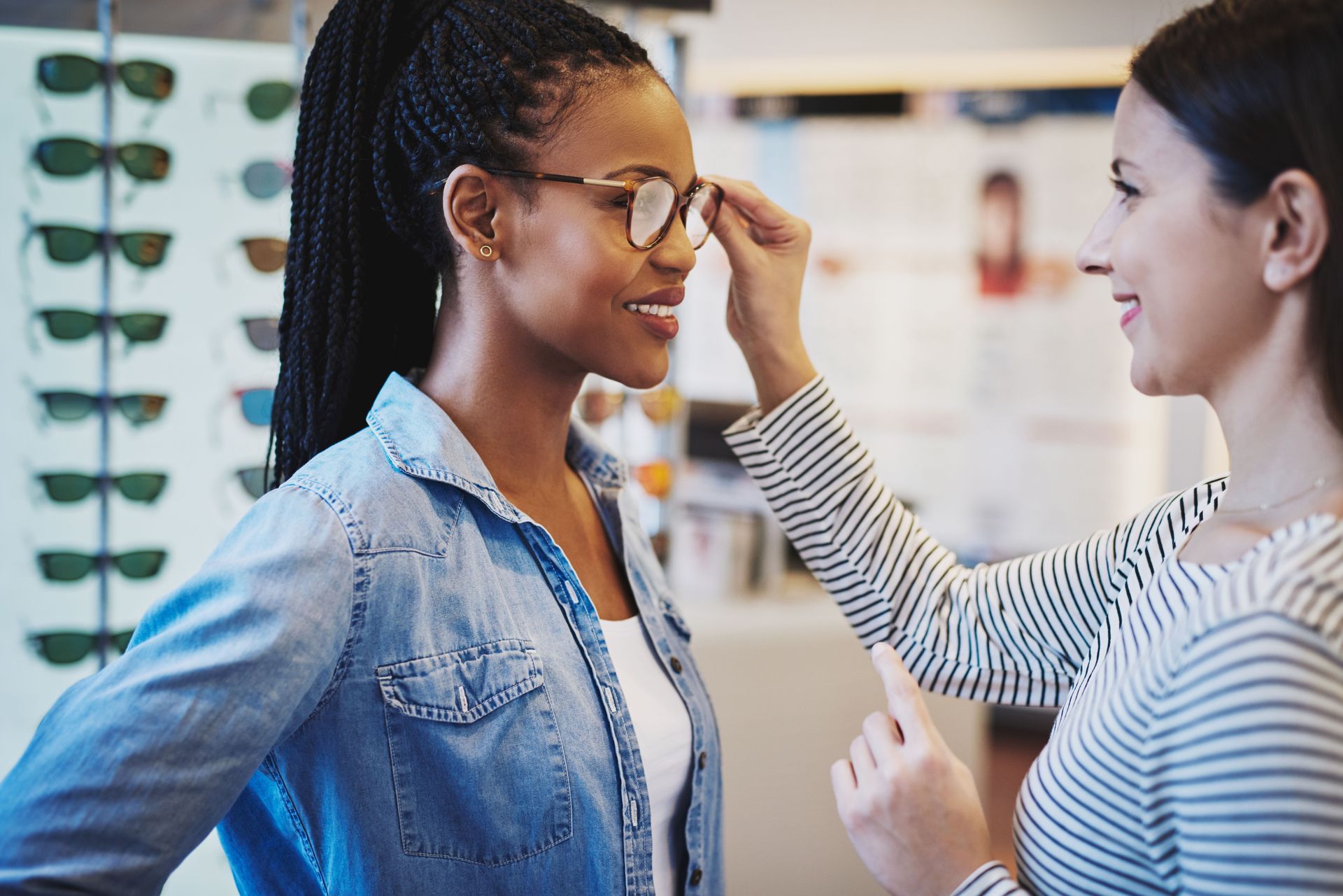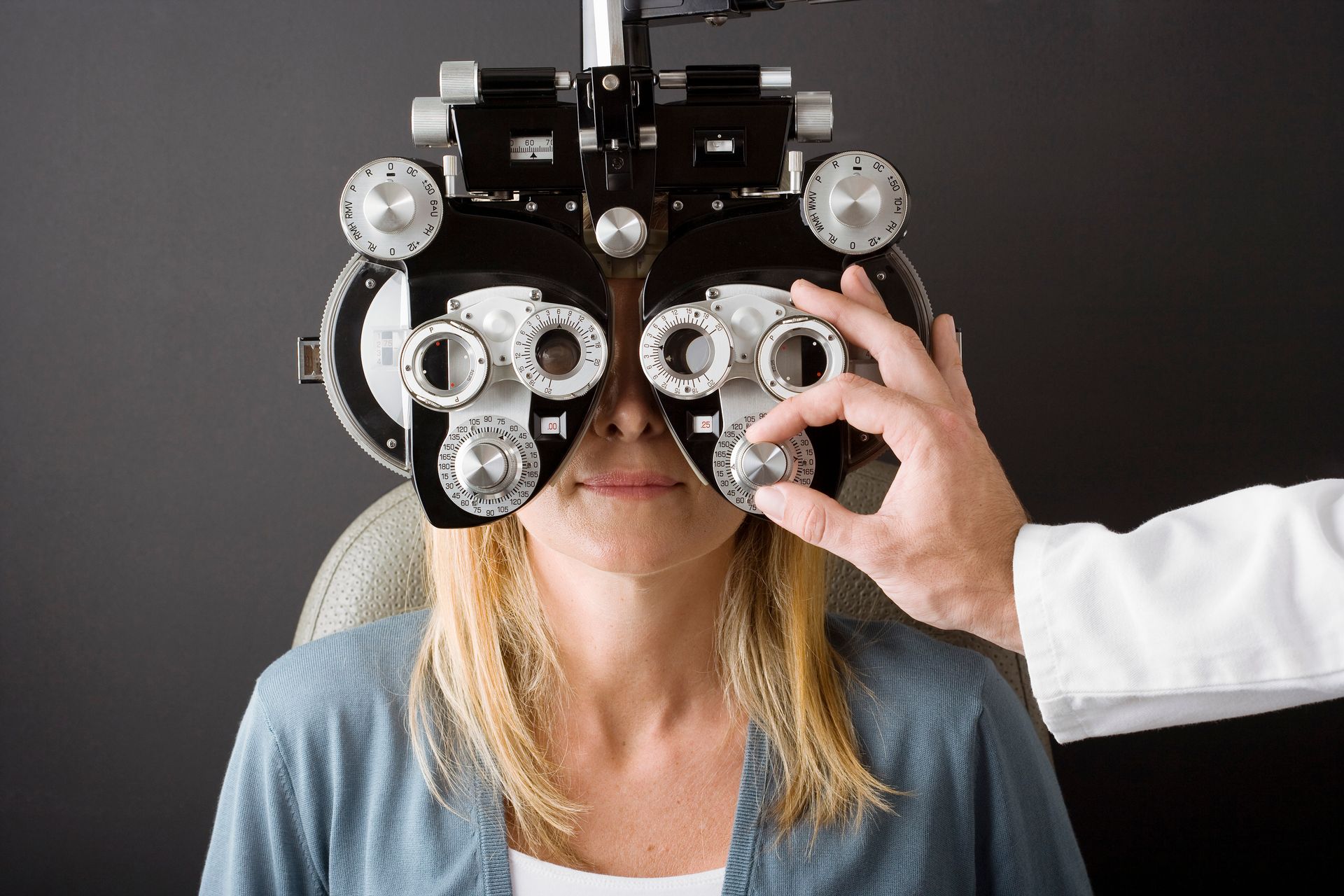How Opticians Help You Choose the Right Lenses
Selecting the right lenses for your eyewear is essential not only for correcting vision but also for improving daily comfort and overall lifestyle. Opticians can help guide you in choosing lenses that suit your specific needs, whether you spend long hours in front of a computer or enjoy outdoor activities in changing light conditions. According to the Centers for Disease Control and Prevention, 90 million Americans over 40 experience vision and eye problems. This statistic underscores the importance of making the right choice for both your eyesight and your everyday experience.
Tailoring Lenses for Prescriptions
Single vision lenses are the most common type of lenses prescribed to correct either nearsightedness or farsightedness. They provide a uniform prescription across the entire lens surface, ensuring clarity of vision at all viewing distances. This simplicity makes single vision lenses an optimal choice for first-time wearers or those requiring straightforward vision correction. Individuals with single vision prescriptions often find these lenses easy to adapt to and experience minimal distortion or adaptation issues.
The straightforward nature of single vision lenses makes them versatile and suitable for both everyday wear and specific activities. For many adults and children, these lenses provide the vision improvement needed for tasks such as reading or driving without complication. The uniform prescription facilitates easy focusing and transition between different tasks, reducing eye strain commonly associated with multifocal lenses. Personalized lens designs can address specific vision challenges, ensuring a custom fit for individual needs. With expert optician advice, single vision lenses can be tailored for maximum comfort and efficacy.
Progressive lenses are designed to accommodate presbyopia, a condition common in older adults where near vision becomes blurred. They contain several different powers allowing users to see clearly at every different distance. The upper part of the lens corrects distance vision and the lower you go into the lens corrects close vision and all the distances in between, such as the computer. These lenses eliminate the need for switching between different pairs of glasses, streamlining daily tasks. Specialists opticians aid in aligning progressive lenses accurately to minimize eye strain and adapt to personal focusing needs effectively.
While progressive lenses offer significant convenience, adapting to the transition line within the lens can take time. However, once accustomed, users appreciate the dual functionality and seamless transition between viewing distances. Regular consultations with eye doctors allow for necessary adjustments, ensuring an optimal fit and experience. The integration of modern materials and coatings has enhanced progressive lens usability, such as progressive bifocals that provide a more gradual transition without visible lines. With a careful design, progressive lenses can cater to individuals requiring varied vision correction in one lens.
Providing Lenses for Digital Screen Users
With increasing reliance on digital devices, blue light blocking lenses have surged in popularity. They mitigate the impact of blue light emitted by screens, which is known to interfere with sleep patterns and contribute to digital eye strain. These lenses filter out a significant portion of harmful blue light, thereby reducing screen glare and improving overall comfort for prolonged screen use. Many eye doctors recommend blue light lenses for individuals who spend a substantial amount of time using computers, tablets, and smartphones. The inherent benefits in such lenses cater to the modern digital lifestyle, ensuring essential eye protection.
Unlike traditional lenses, blue light blocking lenses address the specific wavelengths associated with digital screens, making them distinct yet complementary to other lens technologies. Recent advancements allow these lenses to be combined with anti-reflective and UV coatings, enhancing both indoor and outdoor experiences. Opticians often emphasize the importance of preventing long-term damage associated with extended blue light exposure, such as macular degeneration and disrupted circadian rhythms. As digital interfaces continue to evolve, blue light lenses offer a proactive solution to mitigate these risks. Incorporating these lenses into eyewear can significantly promote better sleep and reduce visual discomfort.
Computer Vision Syndrome (CVS) emerges from prolonged digital screen use and manifests through symptoms like dry eyes, headaches, and blurred vision. Addressing CVS effectively involves combining tailored lenses equipped with anti-reflective and blue light filtering capabilities. These lenses alleviate common symptoms by reducing screen glare and eye muscle strain, leading to enhanced comfort during extended digital tasks. Opticians recommend regular eye exercises, in addition to specific eyewear solutions, to combat CVS symptoms proactively. Enhanced lens options cater to the increasing visual demands of modern working environments, safeguarding eye health.
Recommending Sports and Performance Lenses
For athletes and active individuals, specialized sports lenses provide both protection and enhanced visual performance. These lenses are designed to reduce glare, improve contrast, and offer impact resistance, making them ideal for high-intensity activities. Eye doctors often advise customizing the lens material and tint according to the specific sport, whether it’s cycling, skiing, or baseball. Properly selected sports lenses help prevent injuries while supporting optimal performance under varying lighting conditions.
Beyond protection, sports lenses also enhance visual clarity and depth perception. Athletes benefit from reduced eye fatigue, sharper focus, and improved reaction times when wearing lenses designed for movement-intensive activities. Many eye doctors recommend wraparound frames in conjunction with sports lenses for maximum peripheral coverage and stability. This combination ensures that both vision and safety are optimized for dynamic environments.
Modern sports lenses also incorporate anti-scratch and anti-reflective coatings, extending their usability and performance in diverse conditions. Polarized options are especially effective for outdoor activities, minimizing glare from water or snow surfaces. Opticians emphasize that investing in these lenses can significantly elevate both comfort and effectiveness for athletes of all levels. Additionally, tailored sports eyewear supports long-term eye health by reducing the cumulative impact of environmental exposure during physical activity.
Crafting Specialized Lenses for Medical Needs
Individuals with specific medical conditions may require custom lenses to address unique visual challenges. For example, lenses for patients with cataracts, glaucoma, or macular degeneration can be tailored to reduce glare, enhance contrast, or filter harmful light. Opticians work closely with eye care professionals to create lenses that meet both prescription needs and therapeutic requirements. Customized lenses can improve quality of life by enabling clearer vision and safer mobility for those with visual impairments.
In addition to medical correction, these lenses often integrate features such as anti-reflective coatings, blue light filters, or UV protection to support overall eye health. Patients with light sensitivity, for instance, benefit from tints and coatings that reduce discomfort in bright environments. Opticians play a crucial role in ensuring these lenses are precisely crafted to balance medical functionality with everyday usability. By providing tailored solutions, eye doctors help patients maintain independence and confidence in their daily activities.
Advances in lens technology also allow for adaptive and multi-functional options that cater to complex medical needs. Progressive or multifocal designs can be incorporated into therapeutic lenses, allowing seamless transitions between distances while still addressing condition-specific concerns. Opticians continually evaluate emerging materials and coatings to optimize patient outcomes. With careful planning and professional guidance, lenses designed for medical needs can significantly improve vision quality and overall well-being.
The right lenses can transform not only how clearly you see but also how comfortably you live day to day. Working with experienced opticians ensures that your eyewear is tailored to your unique needs, whether for digital use, sports, or medical conditions. By relying on their expertise, you can make confident choices that protect your eyes, enhance your lifestyle, and support long-term vision health. Contact Optique Boutique for all of your eyewear needs.



















Share On: